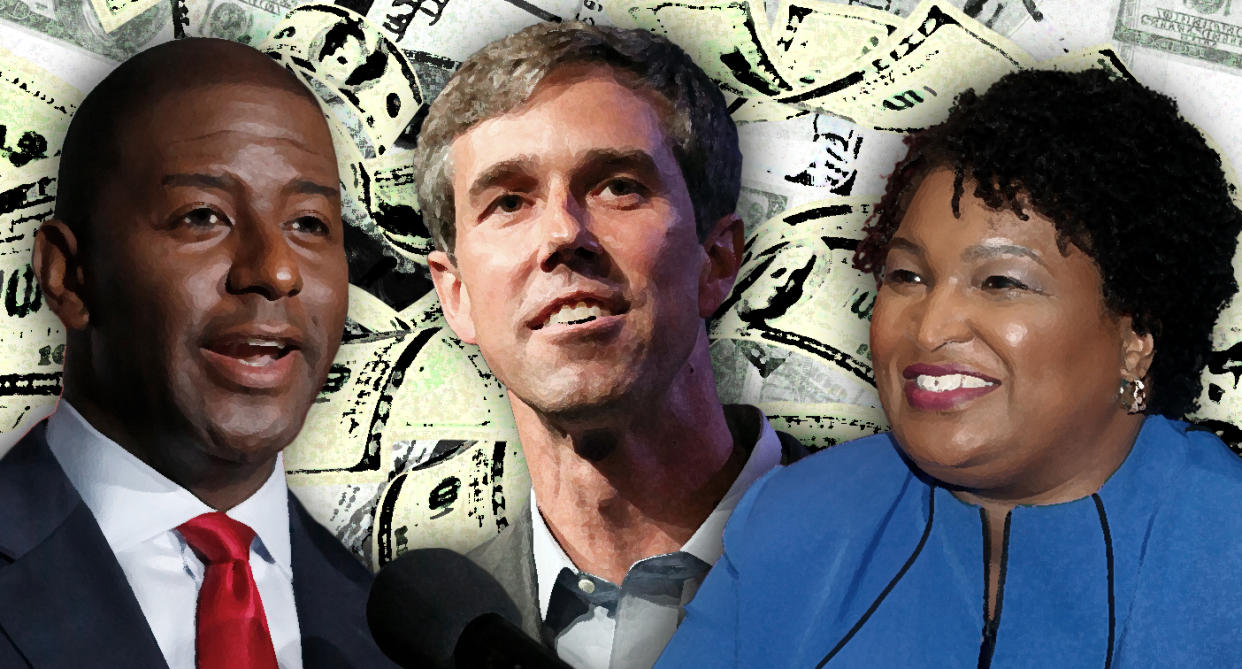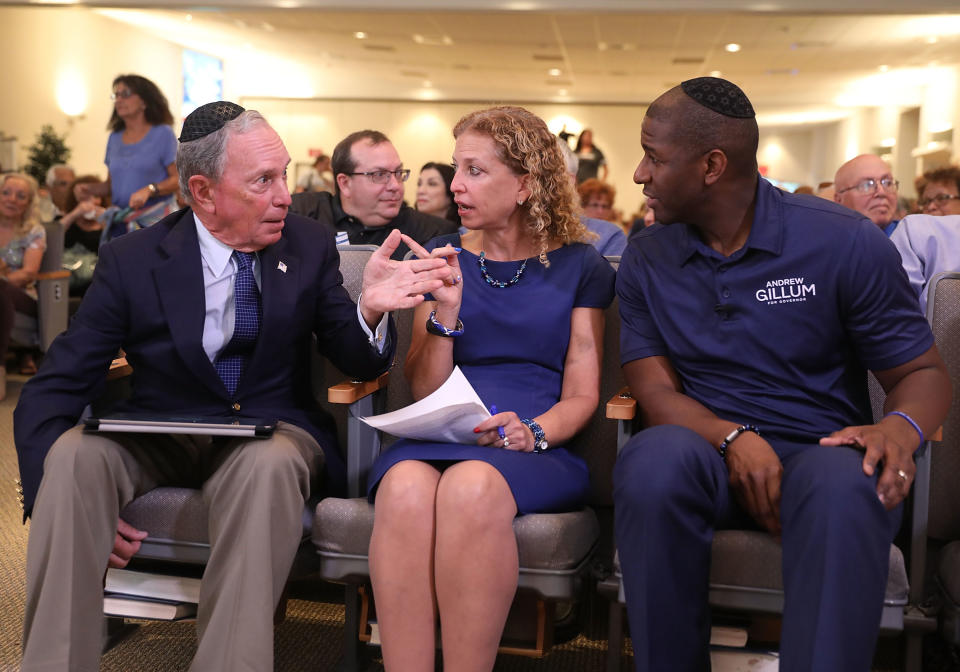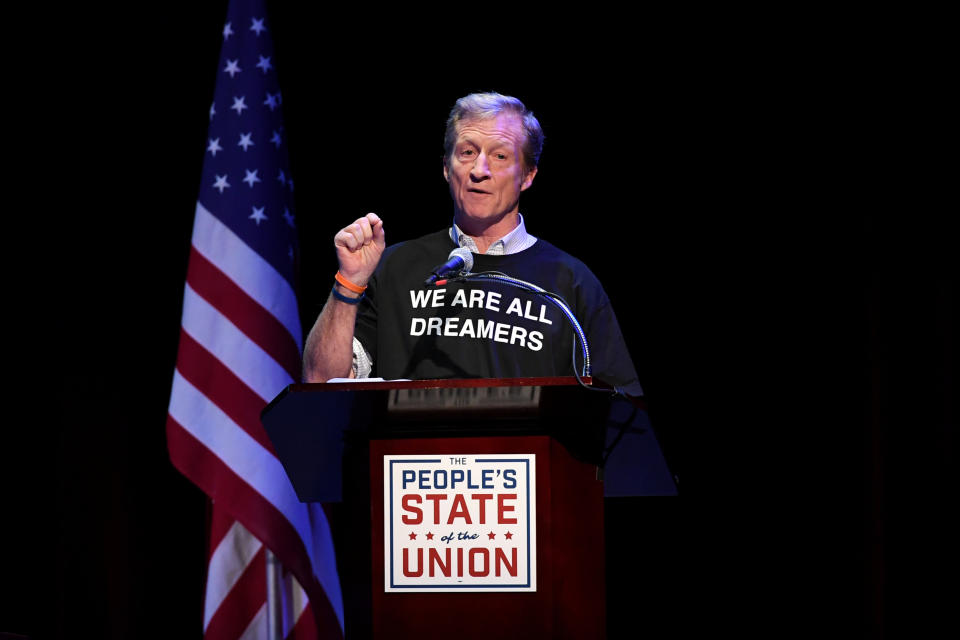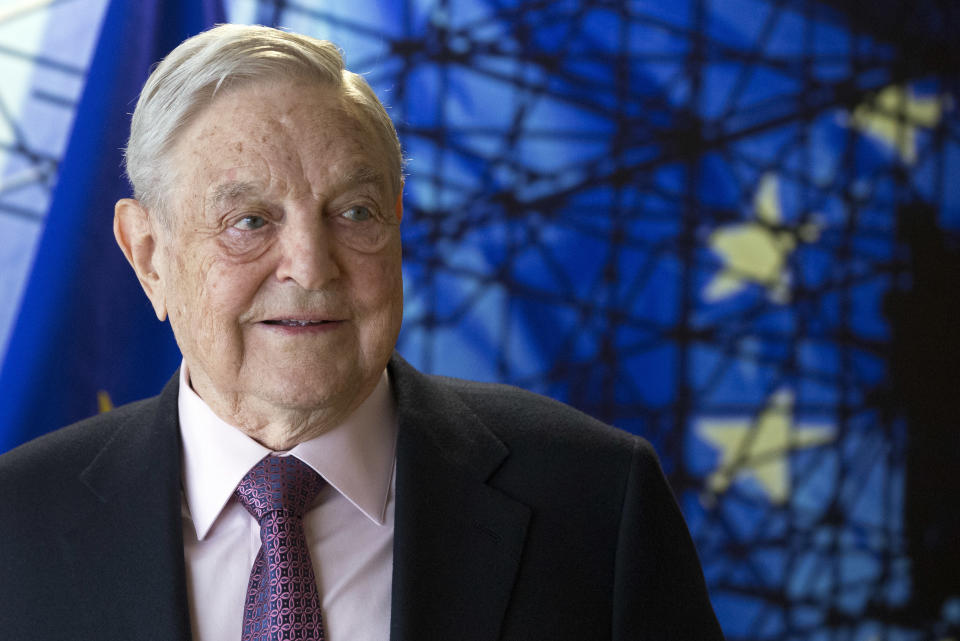Billionaires fund progressives, fight conspiracies

WASHINGTON — Billionaire donors to Democratic candidates are finding that their dollars are in high demand, even as many of those same candidates denounce the influence of money in politics. At the same time, some on the right have falsely depicted liberal billionaires as exercising undue influence on the political process, even though conservative activists pioneered the practice of funding and sometimes minting candidates who suit their ideological requirements.
That is the paradox hounding some of the Democrats’ most visible progressive candidates in the 2018 midterms, including Texas candidate for the U.S. Senate Beto O’Rourke, Georgia gubernatorial candidate Stacey Abrams and Florida gubernatorial candidate Andrew Gillum. All three, whose average age is 43, are promising emissaries from what has been called the “Elizabeth Warren wing of the Democratic Party,” in reference to the progressive U.S. senator from Massachusetts.
All three have also been depicted by Republican opponents, whether fairly or not, as beholden to a trio at the pinnacle of American capitalism: former New York mayor and financial services entrepreneur Michael Bloomberg (net worth: $47.5 billion), financier George Soros ($8.3 billion) and California hedge-funder Tom Steyer ($1.6 billion). These billionaires seem to represent, at least nominally, a vision of success more closely aligned with the business-friendly Republican Party, but their political giving has helped exclusively liberal candidates and organizations.

These three billionaires have also become the targets of far-right conspiracy theories that in some cases crossed the digital divide to cause real-world violence. Last week, Steyer and Soros were both mailed pipe bombs allegedly sent by Cesar Sayoc Jr., a zealous President Trump supporter living in Florida. And on Saturday, a gunman killed 11 worshipers at a synagogue in Pittsburgh. The man arrested in the shooting, an avowed anti-Semite, appears to have subscribed to a conspiracy theory that charges Soros — without any evidence whatsoever — with funding the caravan of Latin American migrants now making its way towards the Southern border of the United States.
The Internet-fueled paranoia may be new, but the monetary support isn’t.
In 2016, Steyer spent about $100 million helping to elect Democrats. Bloomberg spent $65 million, focusing on candidates who supported his gun-control agenda. Soros, who is better known for funding democracy-promoting initiatives abroad through his Open Society Institute, spent $25 million to bolster Hillary Clinton and down-ticket Democrats. Of this $190 million, virtually none appears to have gone to Republicans (Bloomberg did support Pat Toomey, Republican candidate for the Senate from Pennsylvania, because Toomey endorsed expanded background checks for gun purchases.)
What does appear to be changing is the scale of spending. The coming election has seen fundraising befitting a presidential contest, and Democrats are now spending the way Republicans do, with large contributions to super-PACs, which do not have limits on the contributions they can accept. Democrats have also embraced so-called dark money, which comes from sources that do not have to disclose their identities, even though many Democratic candidates continue to decry Citizens United, the 2010 Supreme Court decision that significantly deregulated political giving.
“We’ve certainly seen a rise in Democrats using the same dark money tactics Republicans have deployed for a number of years,” says Anna Massoglia, a researcher at the Center for Responsive Politics, about the 2018 cycle. She notes, for example, that as of September, about 90 percent of the messaging that has supported Democratic candidates for the U.S. Senate has come from Majority Forward, a dark money group whose tax-exempt status means it does not have to disclose its donors (that percentage has since dropped to about 60, Massoglia points out).
“I don’t know if that goes against the values of the party anymore,” Massoglia adds.

And liberal donors are more than happy to lavish millions on candidates they see as capable of countering the Republican agenda. In terms of giving to candidates for national office, Steyer is now in second place for 2018, after conservative casino magnate Sheldon Adelson, having spent $41 million on helping to elect Democrats in this cycle. Soros, openly alarmed by the rise of Trump, has shown a greater concentration on domestic giving; he is now ranked fifth in giving for the current electoral cycle, with $13 million in donations, again all to Democrats. Bloomberg has given $6 million and is in 15th place (these figures do not include all types of giving; Bloomberg, for example, has pledged $20 million to Democratic candidates to the U.S. Senate, but Federal Election Commission filings don’t reflect pledges, only funds already disbursed).
The relationship between progressive candidates and billionaire funders has caught the attention of the right, which has sought to exploit the paradox, sometimes through the apparently intentional use of misrepresentation and innuendo. Kevin McCarthy, the House Majority Leader from California, recently accused Steyer, Soros and Bloomberg of “trying to buy the Congress and flip it.” McCarthy posted the same message on Twitter, the day after an explosive device was sent to Soros at his home in north of New York City. McCarthy later deleted the tweet, which Steyer called anti-Semitic.
In Minnesota, Republicans ran a a television ad deeming Democratic congressional candidate Dan Feehan “owned” by Soros. The charge appears to be related to Feehan’s fellowship at the Center for a New American Security, which receives funding from Soros. Some have called the ad anti-Semitic. (Soros, who is of Hungarian Jewish descent, is a Holocaust survivor.)
Even more tenuous is the relationship between Soros and O’Rourke, who appears to have been largely successful in funding his campaign through small donations. Cruz, the combative conservative defending his Senate seat against the surprisingly spirited challenge from the left, has charged that “the partnership between Beto O’Rourke and the billionaire Soros family won’t be easy to overcome.”
O’Rourke has vowed not to take money from political action groups, but various political action committees have bundled individual contributions on his behalf. Their influence, however, appears to have been marginal. O’Rourke has raised an astonishing $60 million in his race against Cruz, who has raised half as much. Most of that money has come from small-scale individual donors. Soros, for example, appears to have directly given O’Rourke only $2,700.
Abrams and Gillum both have more complicated relationships to super-PACs and dark money groups. Abrams, the Georgia candidate, received a $500,000 donation from Soros in 2014 for Georgia Next, her voter registration initiative. Soros’s children have also given to Abrams, leading to criticism that she has become too reliant on out-of-state donations. Earlier this month, she faced criticism for calling herself a “huge fan” of Steyer.

Gillum, who has criticized the role of money in politics, has received a total of $10 million from Steyer and groups affiliated with him, according to figures provided to Yahoo News by a Steyer spokesperson. Various members of the Soros family have given Gillum about $1.5 million, according to the most recent filing by Florida Forward, his political action group. Bloomberg has donated to $250,000 to Florida Forward.
Republicans, of course, have long had a similar arrangement, with candidates funded by wealthy activists like Adelson, the casino magnate worth $32.5 billion, and industrialists David and Charles Koch, each of whom is worth $50.9 billion. Some of the candidates they have supported have espoused an anti-establishment populism not dissimilar, in some respects, from the rhetoric of progressive candidates.
Democrats argue that they are simply playing catch-up. “The right has a much bigger megaphone than the left,” says Quentin James, whose Collective PAC is committed to electing progressive African-Americans and has contributed to the campaigns of both Gillum and Abrams. It has received $70,000 from Soros, as well as $742,720 from an unknown donor.
James argues that such giving compensates for the working-class roots of many African-American candidates. “We don’t expect him to have the same connections and access to money that many others do,” James says of the 39-year-old Gillum, who grew up in modest circumstances in northern Florida. James forcefully rejects the conspiratorial connotations some on the right are making. He says of Soros, “It’s not like he’s sitting somewhere, directing all the work that’s happening on the left.”
Nor are the dark insinuations likely to stop the money flowing from billionaires to Democrats. Steyer, for his part, said his millions were necessary to counter a Republican Party that is “dealing in fear.” Steyer similarly discounts suggestions that the gubernatorial contest has been bought by outside interests. “It’s a race for the people of Florida,” he reminds, an obvious fact that can nevertheless be lost in the unrelenting hurricane of today’s political discourse. Steyer he is happy to be in the eye of the storm. “Working hard for really good people,” he says, “is something you should never apologize for.”
_____
Read more Yahoo News midterms coverage:
In deep-red Missouri, McCaskill pursues voters far off the Democratic beaten path
With racial tension high in Florida race, Trump calls Gillum a ‘thief’
Menendez race pits ethical concerns against party loyalty, and loyalty is winning
Portrait of a moderate district: NJ-11 leans R, but the race leans D
Virginia Republican congressman tries to weather scandal and wave of spending




